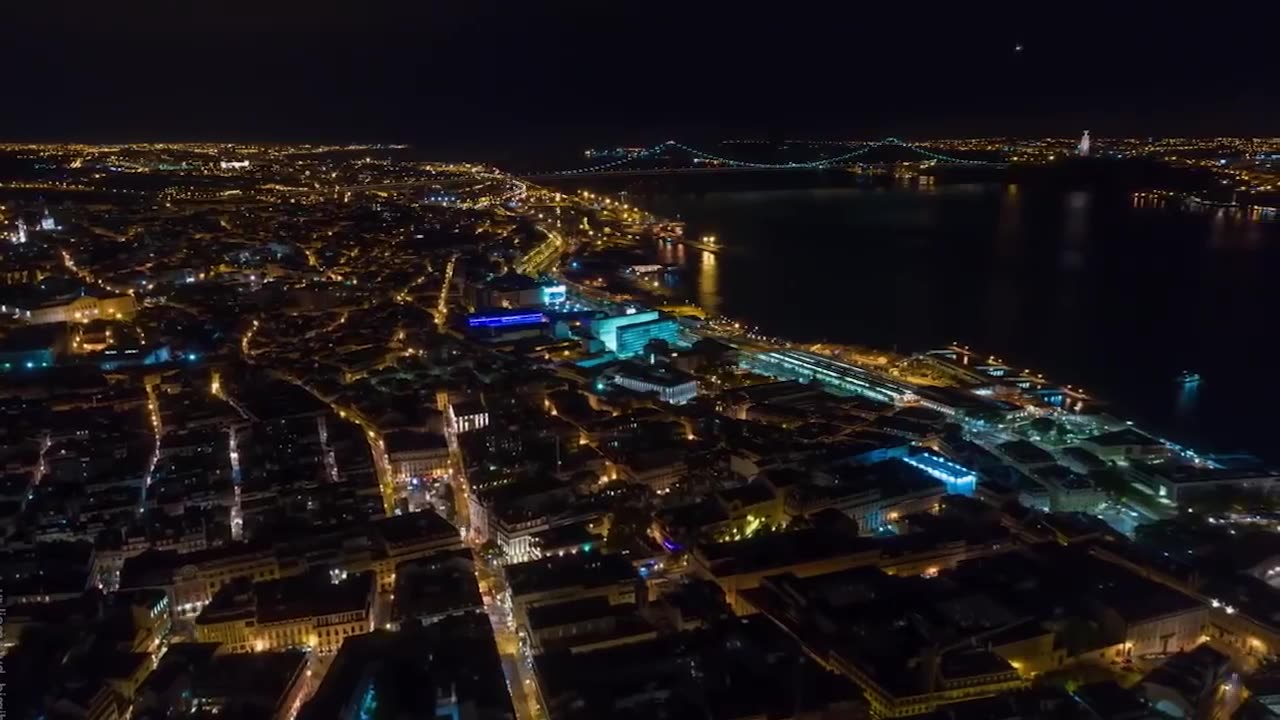Premium Only Content

Travel To Portugal | Full history and documentary about Portugal
Portugal has a rich history and is known for its stunning landscapes, historic cities, and vibrant culture. Here's a brief overview of its history and some notable places to visit:History:Portugal's history dates back to ancient times when it was inhabited by various Celtic and Iberian tribes. It eventually became a Roman province known as Lusitania. In the 12th century, Portugal gained independence from the Kingdom of Leon, and Afonso I became its first king.During the Age of Exploration (15th to 17th centuries), Portugal played a significant role in global exploration, establishing trade routes and colonies in Africa, Asia, and the Americas. This period saw the Portuguese maritime empire at its height. Vasco da Gama's discovery of a sea route to India in 1498 and Ferdinand Magellan's circumnavigation of the globe in the early 16th century are among the notable achievements.In 1755, a devastating earthquake struck Lisbon, leading to widespread destruction and reconstruction efforts. The 19th century brought political turmoil, including the Liberal Wars and the establishment of a constitutional monarchy.The 20th century witnessed significant political change, including the establishment of the First Portuguese Republic in 1910 and a period of authoritarian rule under António de Oliveira Salazar's Estado Novo regime. Portugal eventually transitioned to democracy in the 1970s, leading to modernization and economic growth.Places to Visit:Lisbon (Lisboa): The capital city is a blend of historic charm and modern vibrancy. Explore the Belém Tower, Jerónimos Monastery, and São Jorge Castle. Stroll through the Alfama district's narrow streets and enjoy the city's beautiful viewpoints.Porto: Known for its port wine production, Porto offers picturesque riverside views, historic architecture, and the Livraria Lello, a stunning bookstore. Don't miss a cruise along the Douro River.Sintra: A fairytale-like town with colorful palaces, including the Palácio Nacional de Sintra and the stunning Palácio da Pena, set amidst lush forests.Fátima: A significant pilgrimage site known for the Sanctuary of Our Lady of Fátima, where three shepherd children reported apparitions of the Virgin Mary in 1917.Évora: This UNESCO-listed city features Roman ruins, medieval walls, and the impressive Temple of Diana. The Capela dos Ossos (Chapel of Bones) is a unique attraction.Douro Valley: Famous for its terraced vineyards and port wine production, the Douro Valley offers breathtaking landscapes and wine tours.Aveiro: Often referred to as the "Venice of Portugal," this city is known for its canals, colorful boats, and beautiful architecture.Coimbra: Home to one of Europe's oldest universities, Coimbra boasts historic buildings, including the University of Coimbra and the Joanina Library.Algarve: Portugal's southern region offers stunning beaches, quaint fishing villages, and a vibrant nightlife.Remember that this is just a glimpse of Portugal's history and its numerous attractions. Each place has its own unique charm and significance, making Portugal a fascinating destination for history enthusiasts and travelers alike
-
 LIVE
LIVE
Dear America
1 hour agoWe Are ALL Charlie Now! This Isn’t The End. We Will FIGHT FIGHT FIGHT
4,856 watching -
 LIVE
LIVE
Badlands Media
8 hours agoBadlands Daily: September 11, 2025
2,936 watching -
 LIVE
LIVE
Wendy Bell Radio
5 hours agoA Watershed Moment
9,333 watching -
 4:24
4:24
Bearing
5 hours agoCharlie Kirk ♥️
1.76K28 -
 LIVE
LIVE
The Mike Schwartz Show
1 hour agoTHE MIKE SCHWARTZ SHOW with DR. MICHAEL J SCHWARTZ 09-11-2025
2,930 watching -

Chicks On The Right
4 hours agoCharlie Kirk's assassination, the reaction, and where we all go from here.
30.7K14 -
 LIVE
LIVE
LFA TV
4 hours agoLFA TV ALL DAY STREAM - THURSDAY 9/11/25
5,868 watching -
 1:10:14
1:10:14
JULIE GREEN MINISTRIES
3 hours agoWHAT DO WE DO NOW?
101K259 -
 4:00:20
4:00:20
The Bubba Army
1 day agoCharlie Kirk's Killer On The Run - Bubba the Love Sponge® Show | 9/11/25
126K52 -
 16:58
16:58
Actual Justice Warrior
2 days agoBLM's Original HOAXER Killed By Black Crime
90.8K64